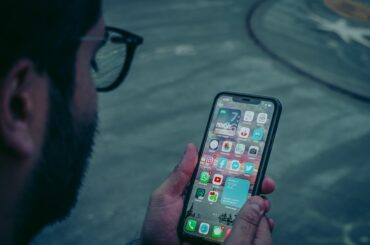Why smartphones get slower over time? we found details on this. These are what we got.
Smartphones are the most used devices worldwide, and they are getting more powerful each year. However, this increase in power comes at a cost: it makes your smartphone slower. Here’s why and how to recover from this issue:
Why smartphones get slower over time?
One possible cause: Gradual memory leakage. “Memory leakage” refers to an operating system bug that doesn’t put the memory in use back on the free list.
As a result, that memory is “lost” it isn’t available to be re-used by any other process forever. As the amount of leaked memory increases over time, there becomes less free memory to allocate, which will slow down tasks that need to allocate memory to run.
Some utilities will check for such memory on various operating systems and restore them to the free list. The most famous one, I think, is the Unix/Linux application “fsck.” These programs work by listing all memory in use, computing the complement of that list, and comparing it to the free list. This takes a long time, and often this is the only thing that can be going on while this task is underway. It might not be so common to do this on mobiles.
This applies to both too long and short-term memory.
The reason is simple: the more apps you install on your device, the slower your device gets as each App you install occupies some resources (RAM, Processor, Harddisk) that leads to reduced device performance.
The golden rule is to keep only the apps you use and delete the ones which are not in use. The newer version of Operating systems uses various techniques, that significantly reduce the resources occupied by apps that are active in memory but not in use.
The OS stops those apps from doing stuff in the background if the user is not actively using those apps. However, even those techniques can only do so much.
One of the ways I manage to do it is – I save my resources on general apps like food ordering apps, cabs, hotels, flight ticket reservation apps etc. It also lets me compare prices and save time. The App occupies more resources than any other app that it is an alternative to, making it a significant way of saving space and resources on my phone.
Background Apps
Background apps run in the background, meaning they don’t need your attention. They can be used to track your location, send spam, or collect data on you, but there are also some legitimate uses.
For example, Uber will sometimes ask permission to access your location when you’re using their App. This allows them to show drivers where you are so they can get there faster.
Memory Leaks
Memory leaks are a common issue on Android devices. They occur when the OS doesn’t release the memory allocated to applications and services, which can result in slower performance over time.
To fix this problem, clear the cache and data of the App you want to update (or delete), then restart your device. This should fix most issues with slowdowns caused by memory leaks.
Intelligent updates
Android updates are released in phases. This is done to ensure that each update has a chance to be tested and that the release of subsequent updates will not cause any stability issues with earlier beta versions.
The same applies to security patches: they are released in phases so that hackers cannot exploit vulnerabilities before Google patches them.
The same applies to performance improvements. They’re made available after they’ve been thoroughly tested on many devices, ensuring that no one device gets left out of the fun because its hardware was incompatible with the latest version of Android (and thus unable to run it).
Android OS Updates
These OS updates can improve performance, security, battery life and speed. Some of the latest Android OS updates have also improved stability. Android OS updates are essential.
Reduced Battery Life
Battery life is reduced over time due to the phone getting slower. This can be due to running more apps in the background or using more CPU power than previous phones. It’s also possible that the battery will only last for a short time if you use your phone more often or have it on standby mode all day long instead of putting it in hibernation mode (which saves energy).
Constant Use
Using your phone for more than an hour daily is the most significant cause of decreased performance. It’s not just the amount of time you spend on your smartphone—it’s how often you use that time:
- Using your phone while it’s charging (or even accidentally leaving it plugged in) can also cause a battery drain. It’s best to unplug all devices while charging and let them sit overnight before using them again. This will help prevent any voltage fluctuations that may be causing problems with charging or draining batteries at an accelerated rate.
- Don’t let your phone rest on its back in any position other than upright or down left because doing so could cause damage to internal components such as processors and memory chips.
Why do smartphones get slower over time? How to recover the issue of the smartphone getting slower
- Background apps
- Memory leaks
- Intelligent updates
Android OS updates, reduced battery life and constant use are why smartphones get slower.
Conclusion
As you have seen, there are many reasons for your smartphone to get slower over time. However, it is possible to recover from this issue with the help of reliable software, which will help your PC clean and optimize your phone in no time!
Photos : Pixabay
Read NTE




